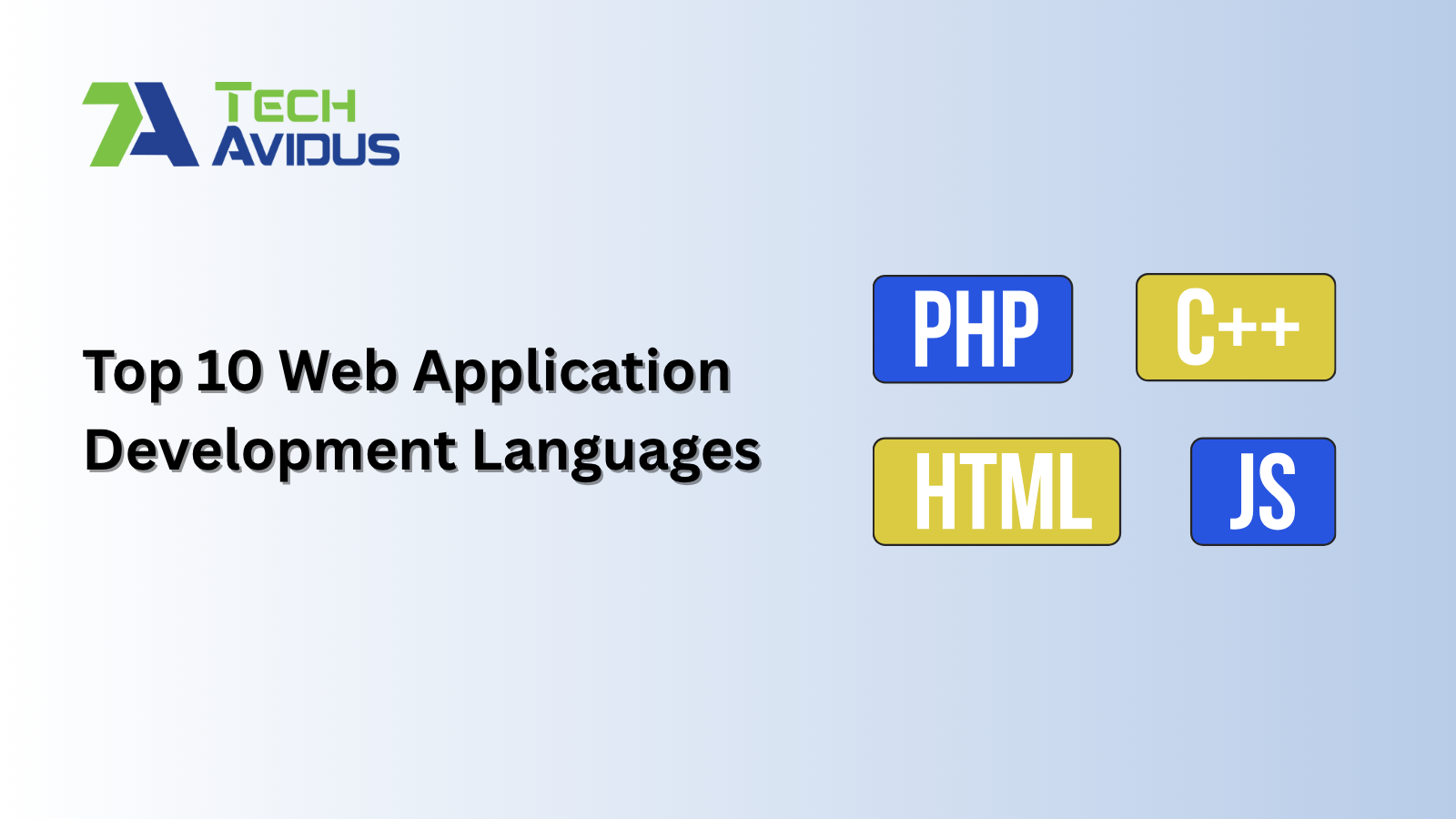
In today's interconnected world, web applications have become integral to our daily lives. From social media platforms to e-commerce websites, web applications are the backbone of our online experiences. Behind the scenes, skilled developers bring these applications to life using various programming languages. Finding the correct programming language is crucial for building efficient, scalable, secure web applications. This blog post will explore the top 10 web application development languages, each offering unique features and advantages.
JavaScript has undoubtedly become one of the most popular web development languages. It enables developers to create interactive and dynamic user interfaces as a client-side scripting language. It allows seamless integration with HTML and CSS, and with the start of Node.js, it can also be used for server-side development. Its vast ecosystem of libraries and frameworks, including React, Angular, and Vue.js, empowers developers to build sophisticated web applications quickly.
React.js is a popular JavaScript library for building user interfaces in web development. It allows developers to create reusable UI components, making code maintainable and efficient. React optimizes rendering performance with its virtual DOM, resulting in faster and smoother user experiences. React's declarative approach simplifies state management, enhancing productivity. It has a vast ecosystem is widely adopted, making it an excellent choice for building interactive and dynamic web applications.
Python's user-friendly syntax and versatility have made it a favourite among developers for web application development. Django and Flask are two widely-used Python frameworks that streamline the development process. Python is renowned for its readability and maintainability, making it an excellent choice for small-scale projects and large enterprise-level applications.
TypeScript is not a separate language but a superset of JavaScript that adds static typing. By enabling developers to catch potential errors during development, TypeScript significantly enhances code quality and maintainability. It compiles to plain JavaScript, allowing it to be used across all modern browsers.
Rust, known for its focus on safety and performance, is gaining traction in web development. Its strict memory safety features make it less prone to common programming errors, such as null pointer dereferences and buffer overflows. With the rise of Web Assembly, Rust is becoming a viable option for building efficient and secure client-side web applications.
Dart is a modern, client-side programming language developed by Google and popularly used in web development. Known for its speed and efficiency, Dart enables the building of responsive and interactive web applications. It's often paired with Flutter, a UI toolkit, to create cross-platform mobile apps. Dart's simplicity and strong typing make it a compelling choice for developers aiming for robust web experiences.
Ruby is celebrated for its elegant and expressive code, making it a joy to work with for developers. It is often used with the Ruby on Rails framework, which emphasizes convention over configuration, reducing development time significantly. Ruby's focus on simplicity and productivity has led to countless successful web applications.
PHP, one of the oldest server-side scripting languages, has a massive user base and powers numerous websites and applications. Its seamless integration with databases like MySQL and its beginner-friendly nature has contributed to its continued popularity. Though it has faced some criticism, PHP has evolved significantly, and modern frameworks like Laravel and Symfony have breathed new life into PHP-based web development.
C# is a powerful object-oriented language developed by Microsoft. It is a preferred choice for web application development, especially for businesses that rely on the .NET ecosystem. ASP.NET, a mature web framework, allows developers to build robust and secure web applications effortlessly. With features like asynchronous programming and LINQ, C# enhances developers' productivity and application performance.
Go, also known as Golang, has gained popularity for its simplicity, efficiency, and exceptional performance. Created by Google, it is well-suited for building scalable web applications. Go's native concurrency support through goroutines and channels ensures efficient utilization of resources, making it an excellent choice for applications requiring high concurrency.
The world of web application development is diverse and constantly evolving. Each programming language mentioned in this list has advantages, and the choice of language depends on various factors such as project requirements, team expertise, and scalability needs. JavaScript remains a top choice for front-end development, while Python, Ruby, Java, and PHP are popular for back-end development. Meanwhile, languages like Go, TypeScript, Swift, and Rust are gaining momentum due to their unique strengths and modern approaches to web development.
As a developer, staying updated with the latest trends and developments in web application development languages is crucial to making informed decisions and delivering cutting-edge applications that meet the demands of the digital world. Whether you are building a small personal project or a large-scale enterprise application, the right choice of language can make all the difference in creating an efficient, secure, and user-friendly web application.Our Top 1% Tech Talent integrates cutting-edge AI technologies to craft intelligent, scalable, and future-ready solutions.
All Rights Reserved. Copyright © 2025 | TechAvidus